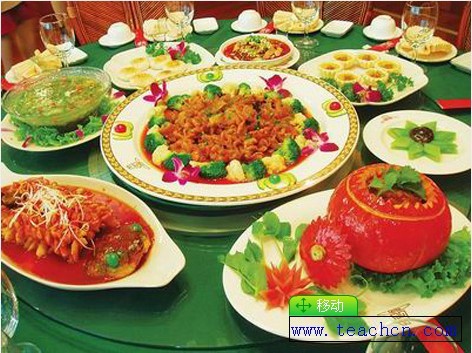Posted 2016/11/14

An increasing number of foreigners coming to China to experiencing its local custom, scenary as well as tasting multifarious food. Chinese food not only well-known for their distinctiver perfection in color, aroma, and taste but more significantly their deeply rooted implication.Chinese New Year's Eve food is espeacially delicious and meaningful.
Chinese New Year's Eve foods
The night before the Spring Festival is traditionally called "New Year's Eve". Several special traditions are associated with the New Year's Eve feast.
First, it is a time for family gathering and reunion when the meal is cooked and eaten at home or enjoyed at a restaurant, all members of the family, old and young, male and female, attend the feast. A place setting is prepared at the table for any family members who are unable to get home for the holidays, symbolically filling their place in the family circle. Because it serves to bring the family together, the New Year's Eve feast is also called the Reunion Feast.
Second, the New Year's Eve feast includes a wide variety of delicious foods and drinks. After working hard all year, people can finally relax with their families and enjoy life. In some regions, it is traditional to drink a special kind of liquor, tushujiu, steeped with herbs, which is said to provide protection against disease in the coming year.
Third, the food served at the New Year's Eve feast has rich symbolic meaning. The dishes definitely include fish and chicken, because their Chinese names are homonyms for "abundance" and "good luck." It is also a way for Chinese to express their inner wishes to the upcoming life next year. In Taiwan, it is traditional to eat fish spheres (like meatballs, but made out of fish), whose round shape symbolizes the family circle and family reunions. The name for Chinese leek is a homonym for "a long time", so dishes made with Chinese leeks are eaten to symbolize long life. Turnips are another popular New Year's dish, because their name in Fujian dialect is a homonym for "good omen."